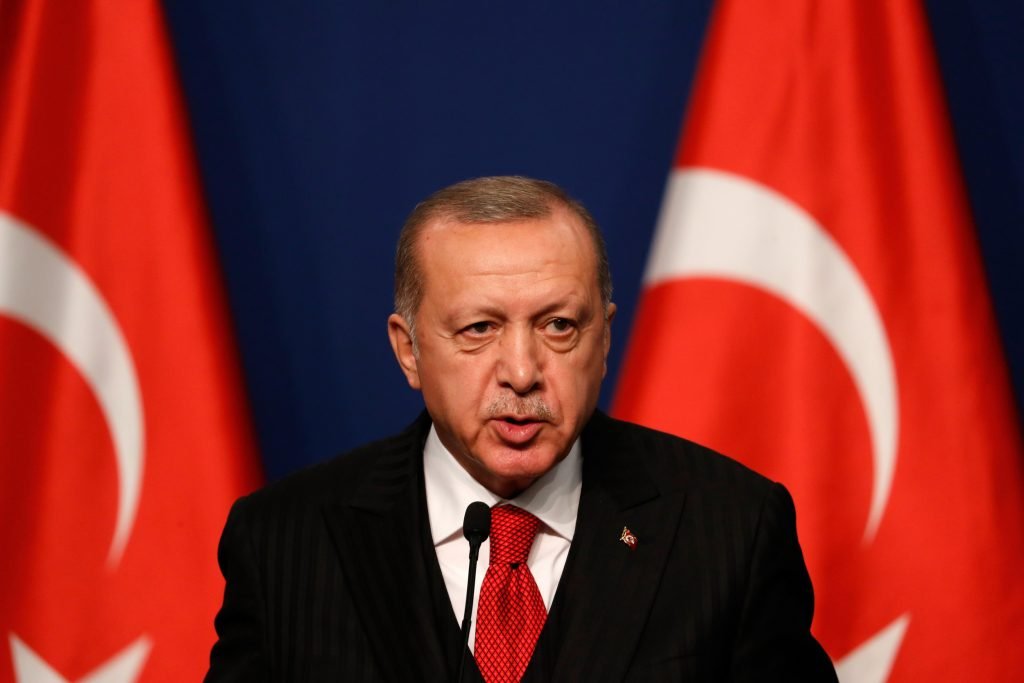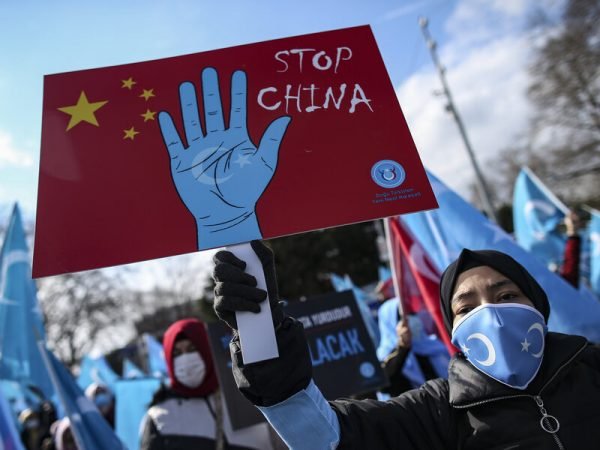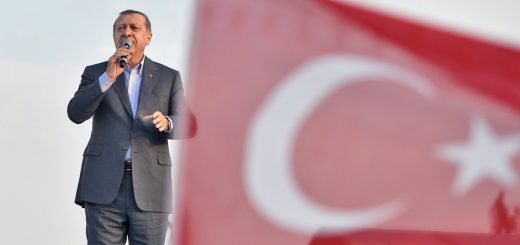Can Erdogan’s Turkey Really Help the Uighurs in Xinjiang?

In March, the Erdogan-led Turkey, for the first time since 2016, claimed to have openly voiced out its concerns on the treatment of Uighurs in Xinjiang to China. The March meeting between Chinese Foreign Minister Wang Yi and Turkish Foreign Minister Mevlut Cavusoglu in Ankara witnessed widespread protests; with Turkic-Uighurs urging China to close the detention camps and stop the genocide committed in Xinjiang. Cavusoglu, after the meeting, claimed that Turkey had conveyed its dissatisfaction with Beijing’s treatment of Uighurs and reiterated the sensitivity of this issue. This had made the Uighurs in Turkey believe that Turkey readopted its role as a protector and a “safe haven” for Uighurs in Xinjiang.
With that being said, the Uzbekistan meeting between Turkey and China in July did not adhere to the precedent set by its predecessor; and was based entirely on mutual cooperation and bilateral agreements. Xi and Cavusoglu met in Tashkent for another time in July where Turkey failed to comment about its commitment to the Uighur question. In fact, according to the Chinese Foreign Ministry report, Turkey went a step ahead and conveyed that “the country did not and will not agree with or participate in any move by some forces to pressure China by using Xinjiang-related issues.” Cavusoglu further went on to assure China that “Turkey firmly supported and will support the one-China principle and China’s efforts to safeguard its sovereignty,” shattering the expectations and beliefs of Turkic-Uighurs and their sympathizers.
Does Turkey have a moral obligation to protect the Uighurs in Xinjiang?
The Republic of Turkey, assuming the title of the “heir of the Ottoman Empire,” has invariably expressed its support to Turks and the greater Islamic brethren around Asia and Europe. The Turkish nationals always included the Uighurs to be a part of their community owing to the similarity in their religions, languages and ethnicities.
It is to be noted that the Ottoman Empire had connections with Uighur leaders in the erstwhile East Turkestan right from the 1850s when East Turkestan was not colonised by the Han Chinese. As the Ottoman Empire disintegrated into the Republic of Turkey, the connection with Uighur leaders in China dwindled. It was to be noted that Turkey, under Kemal Atatürk, extended its solidarity and support to the Turkish communities and Islamic brethren across Eurasia, including Uighurs in China notwithstanding the mild disruption in connections between Uighurs and Atatürk’s Turkey. Moreover, Turkey accommodated the high influx of Uighur refugees from modern-day Xinjiang fearing persecution including Uighur political leaders such as Aptekin, after the CCP came to power in 1949. The political success of Erdogan’s AKP party in 2002 further intensified Turkish involvement in redressing the grievances of Islamic brethren, including addressing the situation of Palestinians and Rohingyas. Then-PM Erdogan went a step ahead and remarked that the 2009 assault of Uighurs in Xinjiang was “nearly a genocide.” From Atatürk’s regime to Erdogan’s Prime-Ministerial regime, all leaders were in constant connection with Uighur leaders; that enabled Turkey to become a “safe haven” for Uighurs.

Why did Turkey’s stance vis-à-vis Xinjiang and the Uighurs suddenly change?
Turkey’s stance vis-à-vis the Uighur issue has suffered high amounts of deviation ever since Turkey’s economy started dwindling. The attempted coup to oust President Erdogan in 2016 further deteriorated the situation as Gülen, the person behind the attempted coup, fled to the United States; and the United States denied to entertain Turkey’s extradition request of Gülen. Adding on, constant confrontations with western powers in Turkey, Syria and Iraq have also significantly altered Turkey’s allies and geopolitical interests. Turkey’s closeness with China and Russia ruptured its relations with NATO powerhouses such as the U.S., U.K., and France; eliminating economic partnerships with these countries. Therefore, Turkey became overly reliant on China for its economy and geopolitical interests.
On the other hand, Erdogan’s fear of his reign collapsing has resulted in Turkey being indecisive and duplicitous when it comes to its stance vis-à-vis the Uighurs. Turkey, which was vocal against Beijing concerning the Uighur question in February 2019, remained silent about the Chinese crackdown on Uighurs in Xinjiang in the 41st session of the UNHRC in July 2019, where a joint letter was signed by 22 countries, including 14 NATO members, that condemned the mass arbitrary detention of the Uighurs in Xinjiang. President Erdogan’s party, AKP, along with its allies, the Nationalist Action Party (MHP), were reported to have quashed a proposal made by a Turkish Opposition Party member to institute an Ad-hoc committee to investigate the grievances of Turkic Uighurs in Xinjiang, in the same month.
The change in Turkey’s stance favourable to China could be traced to Turkey’s financial crisis and overreliance on China. The COVID-19 had pushed Turkey’s economy next to irreparable with trade deficits increasing multi-fold times. Not only did Turkey rely on China’s investments, but Turkey was also heavily reliant on the Chinese vaccine – Sinovac Biotech for its citizens. Therefore, Turkey’s economic situation, especially after COVID-19, along with Turkey’s strained relations with its NATO allies influence Turkey to act favourably to China. One can now understand how Cavusoglu entirely changed the premise of the China-Turkey meetings through pledging commitment to China’s one-China policy and non-interference into Xinjiang in Uzbekistan.
Can Turkey Really Help the Uighur Struggle in Xinjiang?

Turkey’s overreliance on China for economic activities handicaps Turkey from pressurizing China about its treatment of Uighurs in Xinjiang. The OIC also failed in passing a resolution critiquing China on its ill-treatment towards Uighurs. For instance, the OIC released a resolution in 2019 on “safeguarding the rights, dignity and religious, cultural identity of the Muslim communities and minorities in non-OIC states,” that ended up commending China on its efforts in preserving the dignity of Muslims citizens in the country, instead of critiquing China’s treatment of the Uighurs. There was no mention whatsoever of arbitrary detention of Uighurs or the “Cultural and Political re-education camps” set up in Xinjiang for the Uighurs. From the abovementioned example of the failure of OIC and Turkey to penalise China for its mistreatment of the Uighurs, it is clear that Turkey has dropped its moral obligation of protecting the Uighurs in return for the economic and financial development of the nation. Therefore, Turkey has only been and will only be providing lip service for the Uighurs in Xinjiang; while increasing bilateral cooperation with China, in reality.


















